Filter by
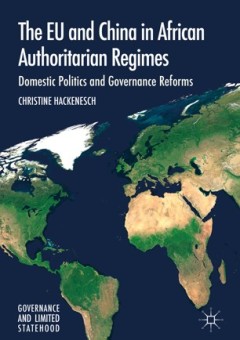
The EU and China in African authoritarian regimes : domestic politics and gov…
This open access book analyses the domestic politics of African dominant party regimes, most notably African governments’ survival strategies, to explain their variance of opinions and responses towards the reforming policies of the EU. The author discredits the widespread assumption that the growing presence of China in Africa has made the EU’s task of supporting governance reforms difficu…
- Edition
- -
- ISBN/ISSN
- 9783319635910
- Collation
- xvi, 261p. : ill.
- Series Title
- -
- Call Number
- 341.2422096 HAC e
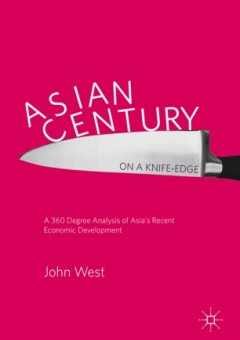
Asian century... on a knife-edge : a 360 degree analysis of Asia's recent eco…
This book delves into the widely held belief that the 21st century will be the "Asian Century" by examining the Asia's rapid economic development in the post-war era and the challenges it faces in forging ahead of world leaders in the West. The impact of the current turbulent global political climate on Asia is critically analyzed, employing a holistic and multidisciplinary approach, combini…
- Edition
- -
- ISBN/ISSN
- 9789811071829
- Collation
- xi, 335p. : ill.
- Series Title
- -
- Call Number
- 320.95 WES a
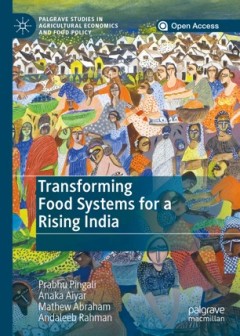
Transforming food systems for a rising India
This open access book examines India’s economic development, agricultural production, and nutrition through the lens of a “Food Systems Approach (FSA).” Despite economic progress, regional inequality, food insecurity and malnutrition persist. Simultaneously, recent trends in obesity and micro-nutrient deficiency indicate a future public health crisis. This book explores the challenges a…
- Edition
- -
- ISBN/ISSN
- 9783030144098
- Collation
- xxiv, 368p. : ill.
- Series Title
- -
- Call Number
- 363.85610954 TRA t
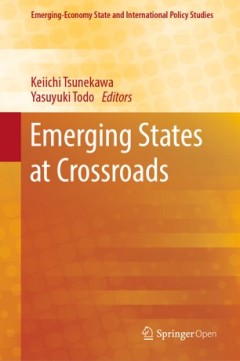
Emerging states at crossroads
This volume analyzes the economic, social, and political challenges that emerging states confront today. Notwithstanding the growing importance of the ‘emerging states’ in global affairs and governance, many problems requiring immediate solutions have emerged at home largely as a consequence of the rapid economic development and associated sociopolitical changes. The middle-income trap is a…
- Edition
- -
- ISBN/ISSN
- 9789811328596
- Collation
- xiii, 293p. : ill.
- Series Title
- -
- Call Number
- 338.95 EME e
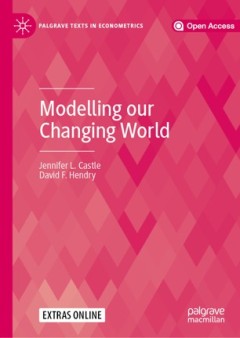
Modelling our changing world
This open access book focuses on the concepts, tools and techniques needed to successfully model ever-changing time-series data. It emphasizes the need for general models to account for the complexities of the modern world and how these can be applied to a range of issues facing Earth, from modelling volcanic eruptions, carbon dioxide emissions and global temperatures, to modelling unemployment…
- Edition
- -
- ISBN/ISSN
- 9783030214326
- Collation
- xix, 128p. : ill.
- Series Title
- -
- Call Number
- 330.015195 CAS m
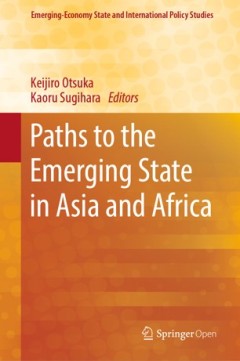
Paths to the emerging state in Asia and Africa
This book addresses the issue of how a country, which was incorporated into the world economy as a periphery, could make a transition to the emerging state, capable of undertaking the task of economic development and industrialization. It offers historical and contemporary case studies of transition, as well as the international background under which such a transition was successfully made (or…
- Edition
- -
- ISBN/ISSN
- 9789811331312
- Collation
- -
- Series Title
- -
- Call Number
- 338.90091724 PAT p
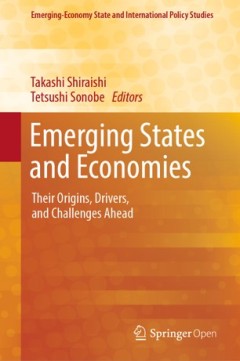
Emerging states and economies : their origins, drivers, and challenges ahead
This open access book asks why and how some of the developing countries have “emerged” under a set of similar global conditions, what led individual countries to choose the particular paths that led to their “emergence,” and what challenges confront them. If we are to understand the nature of major risks and uncertainties in the world, we must look squarely at the political and economic…
- Edition
- -
- ISBN/ISSN
- 9789811326349
- Collation
- x, 177p. : ill.
- Series Title
- -
- Call Number
- 338.9 EME e
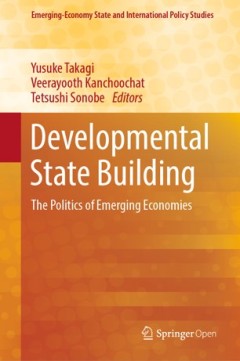
Developmental state building : the politics of emerging economies
This open access book modifies and revitalizes the concept of the ‘developmental state’ to understand the politics of emerging economy through nuanced analysis on the roles of human agency in the context of structural transformation. In other words, there is a revived interest in the ‘developmental state’ concept. The nature of the ‘emerging state’ is characterized by its attitude t…
- Edition
- -
- ISBN/ISSN
- 9789811329043
- Collation
- xiv, 185p. : ill.
- Series Title
- -
- Call Number
- 338.9 DEV d

Culture & money in the nineteenth century: abstracting economics
Since the 1980s, scholars have made the case for examining 19th-century culture, particularly literary output, through the lens of economics. Bivona and Tromp have collected contributions that push New Economic Criticism in new directions.Spanning the Americas, India, England, and Scotland, this volume adopts a global view of the cultural effects of economics and exchange. Contributors use the …
- Edition
- -
- ISBN/ISSN
- 9780821421963
- Collation
- viii, 230 pages ; 24 cm.
- Series Title
- Series in Victorian studies
- Call Number
- 306.009034 BIV c
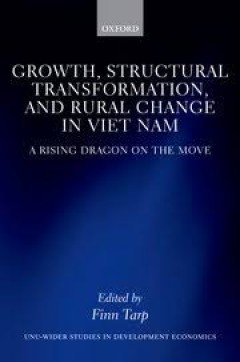
Growth, structural transformation, and rural change in Viet Nam: a rising dra…
Many developing countries—Viet Nam included—continue to struggle to raise incomes per capita. A common feature of the growth and development process is a fundamental change in the pattern of economic activity, as households reallocate labour from traditional agriculture to more productive forms of agriculture and modern industrial and service sectors. Broad structural transformation and wid…
- Edition
- First edition.
- ISBN/ISSN
- 9780198796961
- Collation
- xxviii, 304 pages : illustrations ; 24 cm.
- Series Title
- Studies in development economics
- Call Number
- 330 TAR g
 Computer Science, Information & General Works
Computer Science, Information & General Works  Philosophy & Psychology
Philosophy & Psychology  Religion
Religion  Social Sciences
Social Sciences  Language
Language  Pure Science
Pure Science  Applied Sciences
Applied Sciences  Art & Recreation
Art & Recreation  Literature
Literature  History & Geography
History & Geography